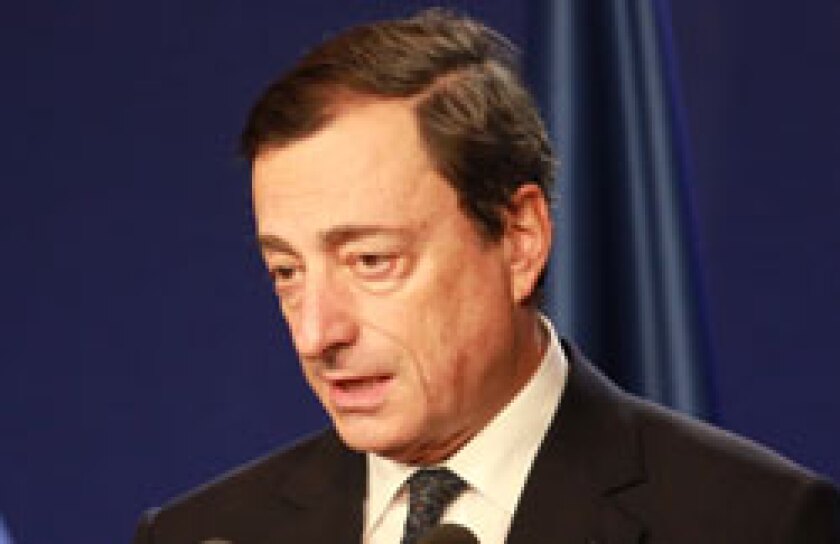But, Draghi added, the central bank’s decision to announce unlimited purchases of 3-year bonds for countries who request the aid of the European Stability Mechanism (ESM) has helped boost investors’ trust.
"Economic activity in the euro area is expected to remain weak although it continues to be supported by our monetary policy stance and financial market confidence has visibly improved on the back of our decisions as regards Outright Monetary Transactions," the ECB president said during his monthly news conference after the bank’s monetary policy decision.
The central bank kept its main interest rate at a record low 0.75% and is waiting for Spain to request the aid of the ESM before buying its bonds, which have been under pressure as investors speculate whether it will be the next in line to need a bailout.
“While just the prospect of Outright Monetary Transactions (OMT) is still buoying market sentiment for now, we think that the ECB will have to start buying bonds soon if markets’ relief is to be sustained,” Capital Economics senior European economist Jennifer McKeown said.
A string of bad data last month pointed to a deep recession in the eurozone, with retail sales and economic sentiment, among others, declining sharply.
Inflation is likely to stay above the central bank’s 2% target for the rest of this year but that it will fall below that level during the course of next year, Draghi also said
"Inflation expectations for the euro area remain firmly anchored, in line with our aim of maintaining inflation rates below but close to 2% over the medium term," he said.
ECB LIKE THE BANK OF JAPAN?
The ECB president reiterated the bank’s willingness to intervene to calm market fears.
"We are ready to undertake OMTs which will help to avoid extreme scenarios, thereby clearly reducing concerns about the materialization of destructive forces," Draghi said.
By insisting on its OMT program, the ECB is in competition with the Bank of Japan, which also announced aggressive monetary easing recently, Marc Ostwald, a strategist at Monument Securities, wrote in a market note. “If we used to assume that the Bank of Japan was the most manacled central bank, but nominally independent of political dirigisme, among so-called ‘advanced’ economies, the ECB is now at least giving the BoJ a very good run for its money,” Ostwald wrote.
Draghi welcomed the result of the vote in Greece, which recently passed with a narrow majority more austerity measures, but said: "The ECB ensures price stability and pursues the restoration of monetary policy transmission channels, but cannot do monetary financing."
This means that, for troubled eurozone countries, the decisions lie in the hands of politicians and there is not much the central bank can do at the moment, analysts said.
“Draghi's much vaunted OMT programme is in fact merely something of which the ECB is merely the administrator,” said Ostwald.
“While the December ECB meeting should be more interesting from the aspect that the ECB will provide updated forecasts, the ECB is in effect 'done' not only with Greece, but also in terms of what it can effect (outside of its administrative duties) in policy terms,” he added.
